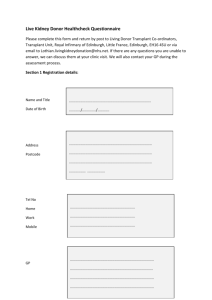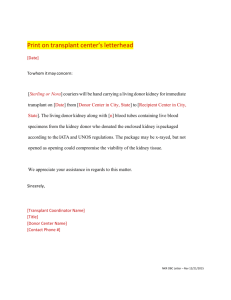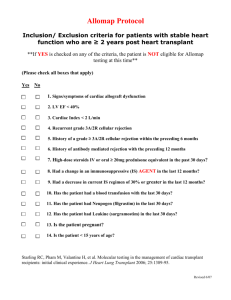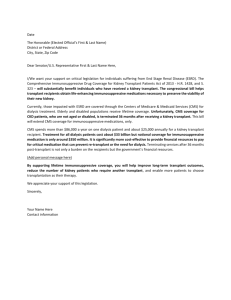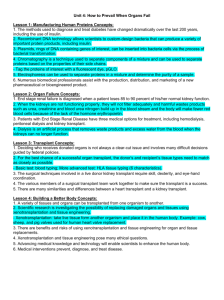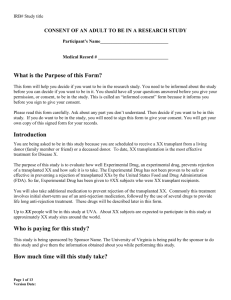Immunosuppressants
advertisement
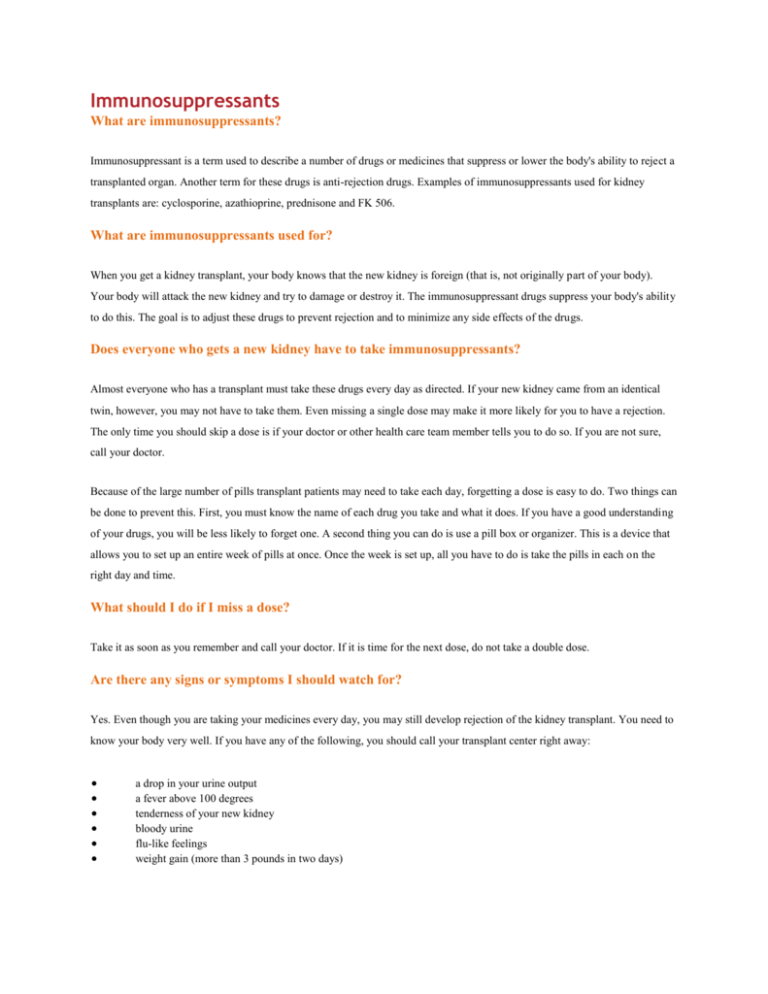
Immunosuppressants What are immunosuppressants? Immunosuppressant is a term used to describe a number of drugs or medicines that suppress or lower the body's ability to reject a transplanted organ. Another term for these drugs is anti-rejection drugs. Examples of immunosuppressants used for kidney transplants are: cyclosporine, azathioprine, prednisone and FK 506. What are immunosuppressants used for? When you get a kidney transplant, your body knows that the new kidney is foreign (that is, not originally part of your body). Your body will attack the new kidney and try to damage or destroy it. The immunosuppressant drugs suppress your body's ability to do this. The goal is to adjust these drugs to prevent rejection and to minimize any side effects of the drugs. Does everyone who gets a new kidney have to take immunosuppressants? Almost everyone who has a transplant must take these drugs every day as directed. If your new kidney came from an identical twin, however, you may not have to take them. Even missing a single dose may make it more likely for you to have a rejection. The only time you should skip a dose is if your doctor or other health care team member tells you to do so. If you are not sure, call your doctor. Because of the large number of pills transplant patients may need to take each day, forgetting a dose is easy to do. Two things can be done to prevent this. First, you must know the name of each drug you take and what it does. If you have a good understanding of your drugs, you will be less likely to forget one. A second thing you can do is use a pill box or organizer. This is a device that allows you to set up an entire week of pills at once. Once the week is set up, all you have to do is take the pills in each on the right day and time. What should I do if I miss a dose? Take it as soon as you remember and call your doctor. If it is time for the next dose, do not take a double dose. Are there any signs or symptoms I should watch for? Yes. Even though you are taking your medicines every day, you may still develop rejection of the kidney transplant. You need to know your body very well. If you have any of the following, you should call your transplant center right away: a drop in your urine output a fever above 100 degrees tenderness of your new kidney bloody urine flu-like feelings weight gain (more than 3 pounds in two days) The transplant center will probably ask you to have some blood tests and maybe other tests. The long-term success of your kidney transplant depends largely on careful follow-up and a good working relationship between you and your transplant team. Am I more likely to get an infection because I am on these drugs? Yes. One of the side effects of these drugs is an increased risk of infections. This is more of a problem in the early period after a transplant or following treatment of a rejection because the dosage of these drugs is higher at these times. You should call the transplant center if you have: a fever above 100 degrees drainage from your surgical scar burning when you pass your urine a cold or cough that will not go away



